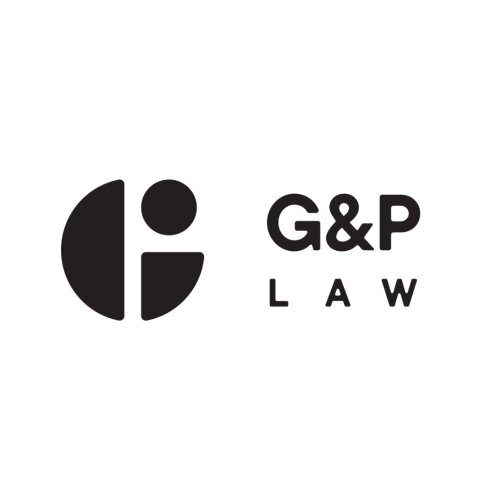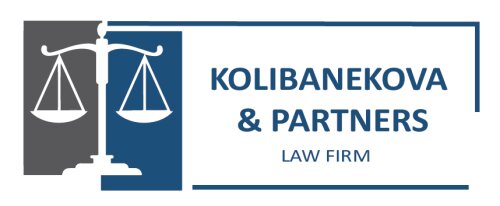Best Restructuring & Insolvency Lawyers in Bulgaria
Share your needs with us, get contacted by law firms.
Free. Takes 2 min.
Or refine your search by selecting a city:
List of the best lawyers in Bulgaria

About Restructuring & Insolvency Law in Bulgaria
Restructuring and insolvency law in Bulgaria provides the legal framework for businesses and individuals facing financial difficulties. This area of law deals with how debt can be reorganized and, if necessary, how assets are liquidated to satisfy creditors. The primary aim is to offer a fair procedure for both debtors and their creditors, allowing struggling enterprises to restructure operations or, in some cases, undergo bankruptcy, all under the supervision of the Bulgarian court system. These laws govern how insolvency is declared, the steps involved in restructuring, creditor rights, and the role of various stakeholders throughout these processes.
Why You May Need a Lawyer
Dealing with insolvency or restructuring can be complex and emotionally taxing, with significant legal and financial implications. There are several situations in which seeking a lawyer specializing in restructuring and insolvency in Bulgaria is highly advisable:
- Your company is experiencing financial distress and you are considering restructuring your debts.
- You are a creditor seeking to recover debts from an insolvent company or individual.
- You have received a notification regarding insolvency proceedings against a debtor you have an interest in.
- You are being threatened with insolvency by creditors or face a risk of bankruptcy proceedings.
- You need to understand your legal rights and potential liabilities during an insolvency process.
- You are involved in negotiations about settlements with creditors or debtors.
- You need guidance on the best legal and financial strategy either to save your business or to maximize returns as a creditor.
Legal counsel ensures you understand your options, comply with local laws, and protect your interests throughout the restructuring or insolvency process.
Local Laws Overview
The main legislative act governing restructuring and insolvency in Bulgaria is the Bulgarian Commerce Act. The relevant rules are found in the section on insolvency within this Act, along with related regulations and case law. Some key aspects include:
- Initiation of Insolvency Proceedings - Usually triggered by a court application, either by the debtor or an affected creditor.
- Restructuring (Stabilization) - Available for companies at an early stage of difficulty to reorganize debts and continue operating, subject to court approval.
- Declaring Insolvency - If a court finds that a company or individual cannot meet its due payments, insolvency is declared, and proceedings are opened.
- Appointment of an Insolvency Trustee - The court appoints a trustee to manage the debtor's assets and oversee the process.
- Creditors’ Rights - Creditors can file their claims and participate in creditors’ meetings. Their claims are ranked, and priorities are observed.
- Reorganization Plans - Opportunity for debtors to present a plan to satisfy creditors while keeping the business alive.
- Asset Liquidation - If restructuring fails, assets are liquidated and proceeds distributed among creditors according to the legal order of priority.
- Personal Bankruptcy - The Commerce Act applies mainly to traders, but the law is evolving, and there are developing procedures for individual insolvency.
Each step in the process involves strict timelines, mandatory documentation, and formal proceedings in court, making professional guidance essential.
Frequently Asked Questions
What is the difference between restructuring and insolvency in Bulgaria?
Restructuring focuses on reorganizing a business’s obligations to enable continued operation, whereas insolvency usually leads to liquidation of assets when a debtor cannot pay debts as they fall due.
Who can file for insolvency proceedings?
Both creditors and the debtor (company or individual trader) may apply to the court to open insolvency proceedings in Bulgaria.
How long does the insolvency process take?
The timeframe varies by case complexity. Simple insolvency proceedings may conclude in a year, but complicated cases with many creditors may last several years.
What assets are protected from creditors in insolvency?
Generally, all assets belonging to the debtor may be used to satisfy creditors. However, some personal assets may be protected according to specific legal exemptions.
Can a company continue operating during insolvency proceedings?
In some cases, yes. Under court supervision and with an appointed trustee, a debtor can continue business activities to maximize asset value or implement a restructuring plan.
Are directors personally liable for company debts?
Directors are not usually personally liable unless they have committed wrongful acts, delayed insolvency filing, or breached legal duties.
What is a reorganization plan?
A reorganization plan is a proposal put forward by the debtor or other eligible parties explaining how to settle debts and keep the business operational, which must be approved by creditors and the court.
What happens to employees during bankruptcy?
Employee claims for unpaid salaries and compensations have a high priority in the distribution of proceeds from asset liquidation. Employees may be retained or dismissed depending on the situation.
How are creditors ranked in insolvency proceedings?
Creditors are ranked by law into several classes, such as secured creditors, unsecured creditors, employee claims, and others. Secured debts are usually paid first.
Is it possible to appeal insolvency rulings?
Yes, most major decisions of the insolvency court, such as opening proceedings or confirming a restructuring plan, can be appealed by interested parties within specific timeframes.
Additional Resources
Those seeking more information or support related to restructuring or insolvency in Bulgaria may refer to:
- Bulgarian Courts (especially commercial divisions at regional and district courts)
- Bulgarian Ministry of Justice
- Bulgarian Chamber of Commerce and Industry
- Public Register of Insolvency Proceedings
- Professional legal associations such as the Bulgarian Bar Association
- Counseling organizations for businesses and entrepreneurs
Next Steps
If you are considering restructuring or fear facing insolvency in Bulgaria, it is crucial to act promptly. Here are recommended steps:
- Assess your financial position and identify problem areas.
- Gather all financial documents and records for review.
- Contact a qualified lawyer specializing in restructuring and insolvency law.
- Arrange for an initial consultation to discuss your situation, options, and possible outcomes.
- Follow your lawyer’s guidance regarding timelines, documentation, and interactions with creditors or the court.
Acting early improves your chances of protecting your assets or finding a successful path forward for your business. Professional legal advice is essential to navigate Bulgaria’s complex restructuring and insolvency procedures.
Lawzana helps you find the best lawyers and law firms in Bulgaria through a curated and pre-screened list of qualified legal professionals. Our platform offers rankings and detailed profiles of attorneys and law firms, allowing you to compare based on practice areas, including Restructuring & Insolvency, experience, and client feedback.
Each profile includes a description of the firm's areas of practice, client reviews, team members and partners, year of establishment, spoken languages, office locations, contact information, social media presence, and any published articles or resources. Most firms on our platform speak English and are experienced in both local and international legal matters.
Get a quote from top-rated law firms in Bulgaria — quickly, securely, and without unnecessary hassle.
Disclaimer:
The information provided on this page is for general informational purposes only and does not constitute legal advice. While we strive to ensure the accuracy and relevance of the content, legal information may change over time, and interpretations of the law can vary. You should always consult with a qualified legal professional for advice specific to your situation.
We disclaim all liability for actions taken or not taken based on the content of this page. If you believe any information is incorrect or outdated, please contact us, and we will review and update it where appropriate.
Browse restructuring & insolvency law firms by city in Bulgaria
Refine your search by selecting a city.















